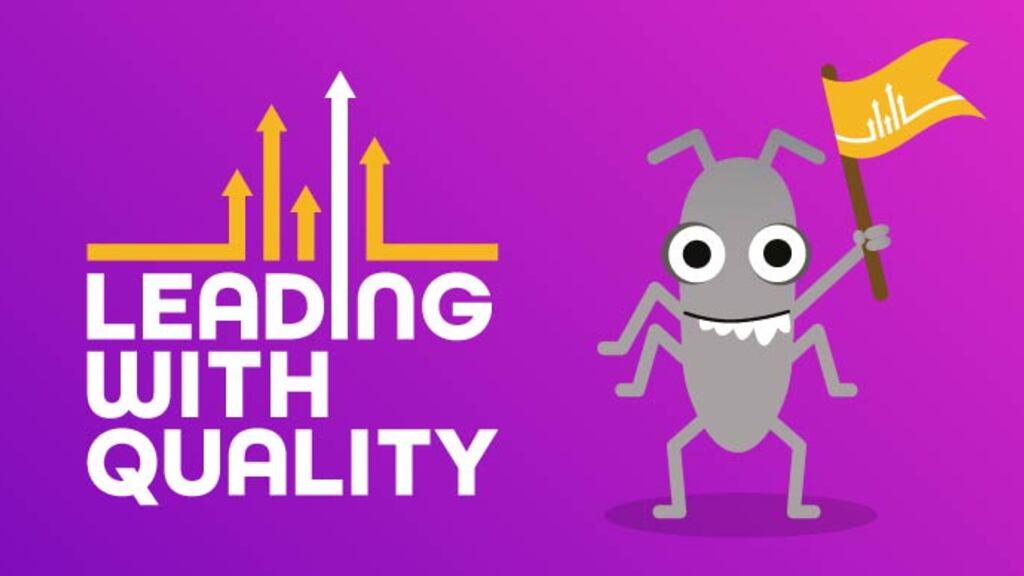The goals of this article are to:
Provide agile team members with some useful tips for using the product owner role to help improve testing practices
Identify areas where a product owner (PO) with a testing background can aid in promoting a whole-team approach to quality
It’s aimed at testers who are perhaps new to agile teams, testers transitioning towards the PO role, and current POs looking to improve their testing know-how.
The Value Of A Tester’s Skepticism
This might sound like a cliché, but it bears repeating: developers have an optimistic / builder’s mindset, in which they build features and believe that they will work. Meanwhile, testers approach testing software with the expectation that it won’t work. As with most stereotypes, there is some truth to this, but mostly in terms that this is a trait gained through experience. Developing software always turns out to be more demanding than initially planned, regardless of how cautiously we plan. There are always unexpected surprises that emerge out of nowhere and we have to deal with a lot of unknown unknowns.
Now, let’s explore how a tester’s skepticism and systems thinking can help the PO write better user stories and proactively suggest improvements to the development team. There are a few ways this can be done: the tester can join the PO in a joint session (as in the “three amigos” approach) and talk about testing the feature’s requirements before the feature is developed. Or, a former tester who’s now the PO should be able to visualize what is the best way to formulate the user story to minimize the possibility of the wrong thing being built. Sometimes developers build the wrong thing because they didn’t fully understand the requirements, and sometimes they build the exact thing asked of them in the requirements, but the requirements were incomplete or ambiguous.
For cases that require healthy skepticism and good systems thinking skills (being able to take into account multiple factors before reaching a decision), a person with software testing experience could become a very thorough, methodical, and valuable PO.
First Among Equals
I won’t quote the Scrum Guide here, but in a nutshell, while everyone in an Agile team is or should be an equal team member (without bosses and managers), the PO role is a somewhat privileged role in this regard. This is in part down to the demanding nature of the role: a good PO needs to be a generalist with strong people skills who leads well AND who has a good grasp of technical details. Testers, who are always learning a variety of skills, are often generalists to begin with, especially as software testing becomes more and more demanding. So an experienced tester arguably might not need much preparation to transition to a PO role especially if they are given a bit of external support.
A tester-turned-PO can hope to improve quality by using the “first among equals” leadership role. This does not mean that the PO should order people on the team to perform more testing. This actually suggests that the PO should use their authority to inspire other team members to have quality in mind: everyone in the team should be contributing towards quality. The business-oriented roles can help with documentation and developing requirements that are understandable and effective. The developers can help improve quality by planning the architectural side of programming and by using their development skills to help with automation. And if the team has dedicated testers, they can help teach team members about testing techniques, tools, approaches, and so on. The PO should constantly encourage the whole-team ownership of quality.
The Tester As The Domain Expert
Now let’s recognize how a tester’s advanced domain knowledge is useful in product ownership. This is especially true for testers who stay at the same company for a long period of time, or if they focus on projects in a single domain. An example might be a tester who loves working in the insurance domain and all their jobs have required them to test insurance-related products.
A tester often becomes a true subject matter expert for the systems they are testing. This intimate knowledge of the application can be a huge boost to a tester who becomes a new PO. Such a PO will have a much easier time realizing which changes to the system might affect other parts of the application. They will also be more aware of which parts of the app are especially complex and prone to defects when changes are made.
Prioritization Skills
Testers' prioritization skills help with maintaining the product backlog. In an ideal world, we would have more than enough time for testing, yet sometimes we have to juggle and compromise. A tester very often needs to decide which parts of the app deserve more attention than the others and which risks are acceptable or not. They make decisions, ideally after consulting with the team, on which tests to exclude out of a potentially huge and slow regression suite, which edge cases to cover and which to leave for later, which stories to test first, and how to test them thoroughly.
Gathering the information needed to make these judgment calls and making these decisions, over and over, will result in a team member who is great at prioritization. As anyone with software development experience knows, this is a critically important ability. A PO who has already developed this skill will be able to decide which features the customer should get first, and in which order they need to be developed. They will also be better at adapting to changes: when the customer changes their mind, when the product vision needs tweaking, and which user stories need to be sliced differently or brought out of the backlog.
The PO As The Acceptance Tester
A PO with a testing background can use their knowledge of testing techniques to improve acceptance testing. When a team is practicing Agile, there should be no need for user acceptance testing, but this is not always the case in practice. Frequently, the PO is the only person in the team doing functional testing, checking the business logic, and testing out the app as a customer might do.
Both tester and PO roles perform testing that is not just technical but also must ensure that the product is user-friendly and accessible. The acceptance part of testing can really get super-charged when we have a former tester, now a PO, handling this part of testing, especially in an enterprise environment where this is the final “sign-off.”
Expert Communication Skills
A tester frequently collaborates with different roles, and that experience is of immense value when you are the new PO. Very often testers need to work closely with a number of various teams, their members, and a plethora of different roles. While some people have an easier time communicating with others than the rest of us, communication is still a skill, and skills can be learned or improved upon. This is especially true for skills that are used consistently over a lengthy period of time.
A tester is always pinging someone, chasing information, attending different kinds of meetings, and pairing with technical and non-technical roles. So it’s only natural that testers become efficient communicators: it’s an unavoidable and crucial aspect of a tester’s day-to-day job. This in turn can be a huge asset to a tester-turned-PO, since that role is also heavily dependent on successful communications within the team, with the various stakeholders, and of course, with the customer as well. If you have built a good relationship with the customer while you were a tester, it will be an instant productivity boost when you become a PO. Also, any connections you have with business management will be greatly useful in your new PO role.
Summary
We explored how testers natural skepticism and critical thinking can be of use to the PO
- How a PO, as the “first among equals,” can advocate for quality
- How a tester as a subject matter expert can become a better PO
- How the tester's prioritization skills can be of use in performing the duties of a PO
- How testing know-how can make the PO better at acceptance testing
- The importance of testers' advanced communications skills ín product ownership
Just one more thing: a new PO must be aware that they are no longer a tester and must invest effort into balancing a tester's need to advocate for more testing with the needs of the business and customers. That’s the product owner’s job.
For Further Reading And Watching
- Testing Ask Me Anything - Whole Team Testing - Lisa Crispin
- Let's Make Our Customers Happy! - Rohit Singhal
- Why Do You Need a Product Owner? 5 Ways to Improve Your Software Development Project - Stxnext Blog
- The Product Owner: Understanding the Role and Responsibilities - Daniel de Oliveira
- Can a Test analyst/QA have the capabilities of becoming a Product owner? - Quora topic
- My Experience as a QA in Scrum - Priyanka Hasija






